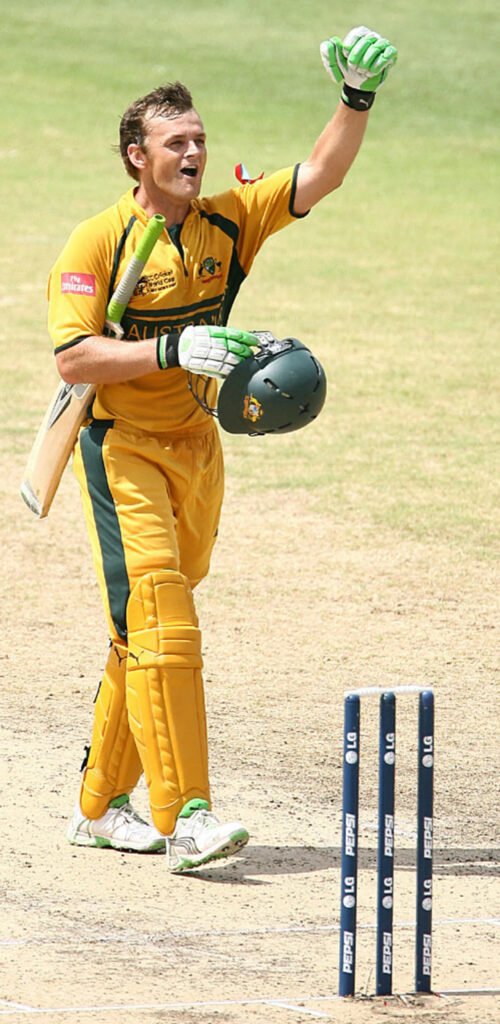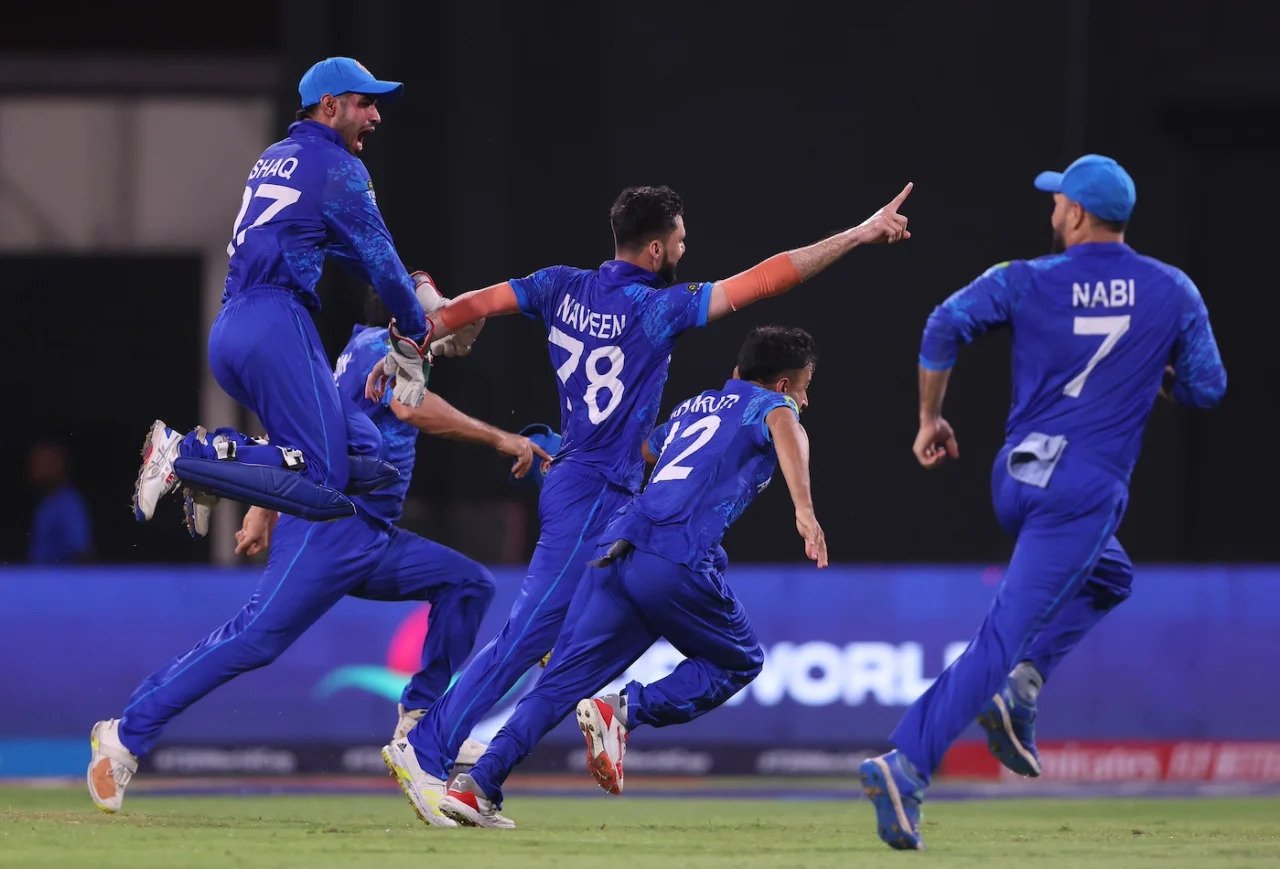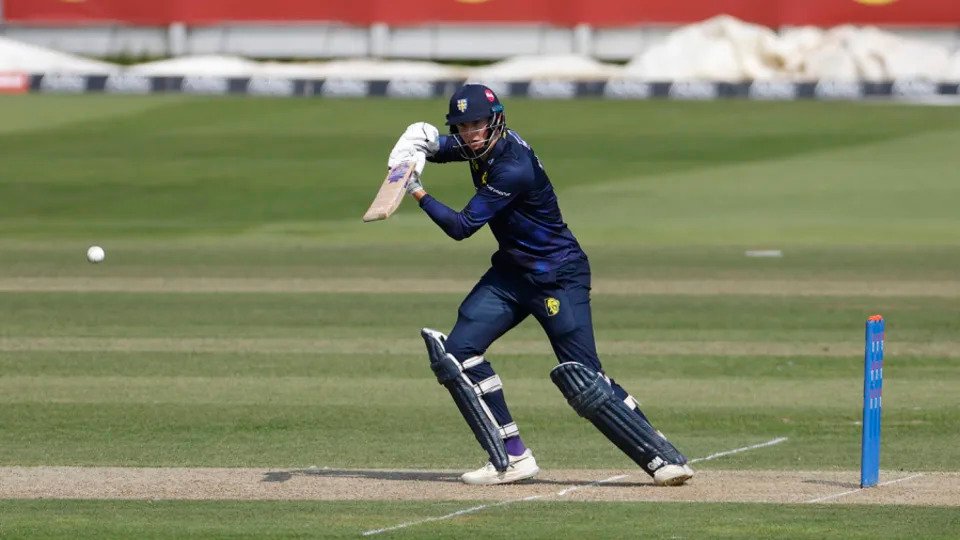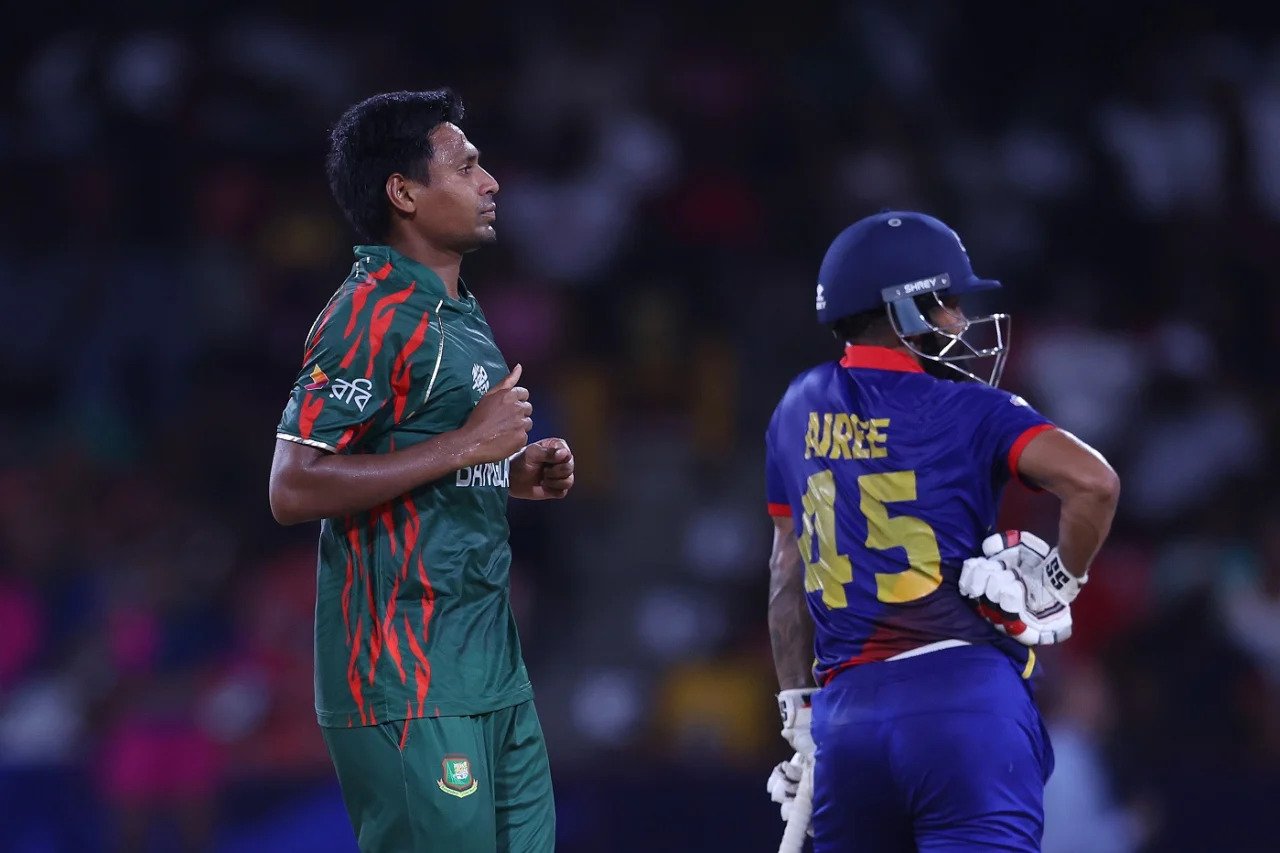Adam Gilchrist’s stellar performance led Australia to their fourth ICC World Cup title, marking their third consecutive win since 1999.
Australia completed the most successful World Cup campaign ever.

Australia defeated Sri Lanka 215 for 8 (Jayasuriya 63, Sangakkara 54) by 53 runs on D/L with 281 for 4 (Gilchrist 149).
Thanks to a brilliant 149 from 104 balls by Adam Gilchrist, Australia sealed the most dominant World Cup campaign ever, winning their fourth title and third consecutive since 1999. Unfortunately, though, that is not what the West Indies 2007 ICC World Cup final—to give it its full and rightful title—will be known for.
The last overs of a broken contest were played in near darkness, broken only by the glow of the pavilion lights and the confused flashing of 20,000 flash bulbs, in a display of cack-handedness that heaped fresh levels of absurdity upon a farcical seven weeks.
Who knows what was going on in those overs. The Australians had already celebrated their victory, and it was too dark for the fielders to see anything, much less the spectators in the stadium or the media on the gantry. That occurred following the sixth delivery of the 33rd over, when the Sri Lankans seemingly conceded the game with an unlikely requirement of 63 from 18 balls, having accepted an offer for bad light.
There will definitely be blame-games, buck-passing, and recriminations about what transpired next. Umpire Aleem Dar interrupted Australia’s joyous huddle with a tap on the shoulder. The ground crew, who had been unpegging the onfield logos, were instructed to put them back in place, move the pitch markings, and send the players out to block their path into the dusk. It was ridiculous, indecent, and totally fitting for a competition that had long since severed its ties to the history of athletic competitions.
However, let us focus on the on-field action, because despite the overwhelming shame, there was some very fine cricket played before the authorities intervened and ruined everyone’s memory.
Despite the romantic ideas surrounding Sri Lanka’s second final appearance in four tournaments, including the mystery surrounding their bowling attack and the cunning of their batsmen, Australia’s brutality was evident as they continued their unbeaten streak in World Cup matches, which now stands at 29 since May 1999.
And it was Gilchrist who rushed to the front, displaying a sense of occasion that only a select few possess. He had stolen the show three times in as many World Cup finals. In 1999, he hit 54 off 36 balls against Pakistan at Lord’s; four years later, in Johannesburg against India, he made 57 off 48. However, nothing came close to this. There was no stopping Gilchrist, or Australia, once the sun came out and he had learned the pace and bounce of a real, rock-hard surface.
Gilchrist’s innings, which surpassed the record of 140 set by his captain Ricky Ponting four years ago, was the highest in a World Cup final ever. It was started in a stand of 172 for the first wicket with Matthew Hayden, who made 38 from 55 balls before putting Mahela Jayawardene out of the game in the covers.
Despite his remarkable innings that raised his tournament total to 659 runs at 73.22 (second only to Sachin Tendulkar’s 671 in the 2003 World Cup), Hayden looked as invisible as he had for the previous seven weeks. It made no difference at all because he was an exceptional second fiddle with lightning-fast reflexes. With nearly five more overs than his partner, Gilchrist was comfortably at 119 by the time Hayden was dismissed.
Also Read: 2015 Cricket World Cup Final: Australia Triumphs Over New Zealand
Also Read: Australia’s Dominance in World Cup 2023
Australia were certain, even though Jayawardene had wavered before the toss, stating he wasn’t sure what he would have done if he had won. They have batted first five times in this competition and scored more over 300, which would have made it six times in a row in a longer match.
In the second over, Gilchrist set the tone by hitting Chaminda Vaas for four and six, while the deadliest weapon in Sri Lankan cricket history, Lasith Malinga, chose accuracy over explosiveness.
Malinga scored just six runs in his opening four overs, but he was averaging 84 mph, which was a full 10 mph slower than his explosive effort in the semifinal. That meant that the much-needed early breakthrough for Sri Lanka never came, particularly after Gilchrist had made a run-a-ball 31 and Dilhara Fernando, who had started well enough from round the wicket, had dropped a sharp return chance down by his shins.

The contest had been cut short by early rain to 38 overs, and with it, Sri Lanka’s best chance to dictate the pace of play. After that, Fernando was a broken man; he was clubbed for four, four, and six on his next three deliveries, the last of which almost brought down the fire engine next to the 3Ws stand at long-on.
It was presumably placed there to quell the fervor of Australia’s batsmen, since Gilchrist was blazing hot. With a well-placed four over far off, he scored his 15th ODI century in just 72 balls. After that, he ripped through the line with abandon, relying on his vision, the pitch, and the knowledge that his opponents were no longer in the game.
Despite a rapidly declining run rate, Sri Lanka’s batsmen gave it their all, striking the bat with abandon as the crowd’s cameras revealed the light and their dreams were vanishing.
The match was still close when Sanath Jayasuriya and Kumar Sangakkara put on 116 runs for the second wicket. However, Sangakkara misplayed Brad Hogg to Ponting at midwicket, and Jayasuriya was bowled by Michael Clarke, a part-time spinner, on his last ball in a competition he has been a part of since 1992.
Another guy making his farewell bow, Glenn McGrath, grabbed another piece of attention with his penultimate ball in international cricket. By no means was it his best ball; it was a legside full-toss that another retiree, Russell Arnold, blasted off his hip to a diving Gilchrist. However, it helped him reach records for both the event and the World Cup, raising his total wicket total to 26 and 71, respectively.
In actuality, Sri Lanka were deserving runners-up in this match; they persevered calmly in the face of tremendous odds, and Australia‘s victory margin was the narrowest in the tournament’s history, as well as their last three World Cup victories. Long after the teams have taken off, though, the way the win was signed and sealed will irritate many. That is the nature of cricket as it is played today.





